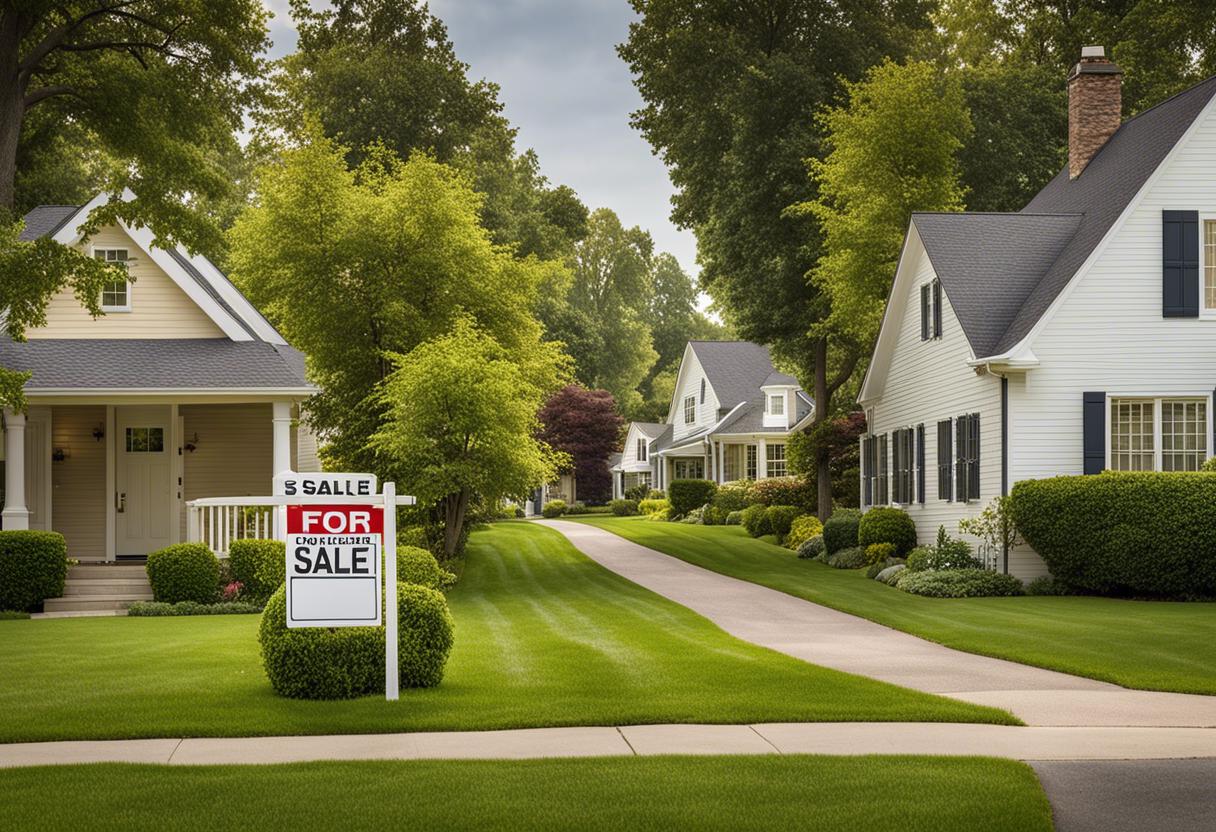In the opening quarter of 2024, home sales saw a decrease by 18 per cent due to amplified borrowing expenses as a result of ten consecutive interest raises by the European Central Bank (ECB). This data, provided by property start-up Geowox, indicates 10,213 properties were sold in this period, marking an 18.4 per cent drop from the same time frame in 2023.
Dublin observed the highest rate of transactions with a total of 3,095, while only 85 properties were sold in Leitrim, the location with the fewest sales. A sharper downturn was noted in new home transactions, dipping by 26.1 per cent from 2,157 sales in 2023 to 1,595 in the current year. The sale of pre-existing homes also saw a decrease of about 16.8 per cent, falling to 8,618.
In spite of the decrease in sales volume, housing prices did not follow a similar trend. The Residential Property Price Register’s data showed a year-on-year inflation in the national property market of 6.5 per cent. For the current quarter, the median purchase price for a property stood at €330,000, a jump from €310,000 in 2023.
The median price for a residence in Co Dublin was reported as €445,000, 56 per cent higher than the nationwide median price of €330,000. Wicklow topped the lists with the highest median prices at €450,000, closely followed by Dublin. Median prices in Dublin city increased to €500,000. Donegal was the most affordable county where the median price was €165,000.
Within the Dublin postcodes, Dublin 6 – which includes Ranelagh and Rathmines – was the priciest, with a median house price of €854,000.
Marco Giardina from Geowox attributed the sales drop to various reasons like economic instability, alterations in mortgage rates, or different regulatory influences on the housing sector. Notably, the company’s report shed light on the 22.4 per cent premium that energy-efficient houses attract over less green homes. It pointed out that despite the total reduction in sales, the demand for eco-friendly homes remained “resilient.”
Data from Geowox mostly aligns with the recent Residential Property Price Index from the Central Statistics Office (CSO). According to the index, there was a general inflation increase of 6.1% in the 12 months to the end of February, slightly higher compared to previous periods.
In the year leading up to February, the CSO estimated the average price of a home at €330,000. Last year, the country’s property market experienced a significant deceleration due to restrictive financial measures implemented by the European Central Bank (ECB). Yet, ongoing supply problems and predictions of declining interest rates later this year sparked a resurgence in price growth.
The ECB aims to launch interest rate reductions in June and plans two or three further cuts this year as inflation begins to ease. The combination of decreasing borrowing expenses with the Government’s various help-to-buy schemes might stimulate further growth in property prices.

